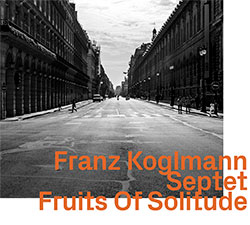
With a superb septet of improvisers also versed in contemporary music, trumpeter Franz Koglmann presents sophisticated compositions that interject the concept of "solitude" in the three-part title track, alongside Koglmann compositions and Jimmy Giuffre's "Finger Snapper", using striking orchestration of trumpet, sax, clarinet, bassoon, oboe, french horn, cello and double bass.
In Stock
Quantity in Basket: None
Log In to use our Wish List
Shipping Weight: 3.00 units
EU & UK Customers:
Discogs.com can handle your VAT payments
So please order through Discogs
Sample The Album:
Franz Koglmann-flugelhorn, trumpet
John Clark-french horn
Mario Arcari-oboe, english horn
Daniele D'Agaro-clarinet, bass clarinet, tenor saxophone
Milan Turkovic-bassoon
Attila Pasztor-cello
Peter Herbert-double bass
Click an artist name above to see in-stock items for that artist.
UPC: 752156100522
Label: ezz-thetics by Hat Hut Records Ltd
Catalog ID: ezz-thetics 1005
Squidco Product Code: 27403
Format: CD
Condition: Sale (New)
Released: 2019
Country: Switzerland
Packaging: Cardboard Gatefold
Recorded at 4tune studio, in Vienna, Austria, on September 8th - 13th, 2018, by Reinhard Buchta.
"So much solitude in this far end of quiet, an isolate mystery no one finally knows... The Chinese poet Po Chu-i's thoughts about solitude, set down approximately 1200 years ago, may still mirror our own; though we live in an over-crowded, over-stimulated age when true solitude may be all-but-impossible to experience, they suggest some of the intimate and inexplicable feelings we confront when and if we turn inward and explore the possibilities of the self. With this program, Franz Koglmann - composer, arranger, trumpeter, and conceptualist - shares with us his musical ruminations on those same mysteries, not strictly of loneliness, but the values of separation, free of distractions and left to our own devices.
Koglmann's contemplations may or may not have initially been inspired by a musical theme - Duke Ellington's tone poem, "Solitude" - but like Ellington he has no qualms about readapting musical ideas to expose a restless creativity. Ellington recorded "Solitude" orchestrally twice in 1934, with the reed writing confiding a melancholy air. In two solo piano takes from 1941, his casual demeanor is reminiscent of Fred Astaire singing Irving Berlin's "By Myself" in the 1953 film The Band Wagon. By way of contrast, he romanticizes the theme in his solil- oquy on 1962's Money Jungle, leaving even Charles Mingus and Max Roach little to do. Outside of the original orchestration, the most effective version may be the one Ellington recorded also in '62 with Coleman Hawkins, where Ray Nance's violin seduces the melody, and the tenor saxophone giant offers an improvisation as suave and sure-footed as, again, Astaire ever danced.
In his own unique fashion, Koglmann has chosen and forged a program which no doubt has a particular meaning for himself, but which resonates in a broadly metaphorical manner. The adaptations and carefully considered originals are acts of homage to inspirational sources - retrieved from memories, re-imagined in this new context, and voiced in his personal syntax, all the product (that is, the fruit) of a creative solitude. Prescribed by his Viennese background (his ear drawn to the chromatic palette of Alban Berg more so than, say, even that of Gil Evans), the instrumentation (represented by a sterling cast of players) is more chamber ensemble than jazz combo - although I prefer the archaic designation "broken consort," to represent the variety of tonal colors he makes deft use of - while at least half of the material is rooted in jazz precedents, albeit no longer bound to jazz procedures.
For example, Jimmy Giuffre's "Finger Snapper" was first recorded in 1955; basically a riff tune, Giuffre distorted the song form with counter point between his baritone saxophone and Jack Sheldon's trumpet, and open spacing for the bass and drums. Koglmann has reconfigured it, with abstracted motifs floating in and out of modulations, a thicket of details. Pianist Dick Twardzik's "Yellow Tango" (1954) is built upon the same bass foundation, but the exotic scoring - as English horn and flugelhorn introduce and elaborate on the melody - and freer harmonic range provide imaginative escape. Similarly, among Koglmann's original pieces, "Salut Solal!" references the French-Algerian pianist/film composer Martial Solal, with disrupted figures alluding to his quick wit and perhaps ever-so-New pieces like the piquant "Untitled" and "Garden with Blue Terrace" (inspired by a David Hockney painting with strong Fauvist or Der Blaue Reiter colors, but significantly empty of people), sprout equally multi-hued vegetation. Finally, the three original pieces which Koglmann calls "Fruits of Solitude I - III" are distinct compositions, rather variations on a mood than on Ellington's melody (though recognizable motifs flourish), as Koglmann's characteristic keen, incisive, atypical harmonies evolve from a wistful ambiance into surprisingly bluesy, noirish, and dancing episodes, respectively.
Solitude may occur in multiple dimensions, of found subtly his long association with the composer/critic André Hodeir; just as "Martians don't go home anymore" is a caricature of the best known of Shorty Rogers' Martian-themed pieces, including the insinuation of a Viennese waltz for good measure.
Solitude invites a re-examination of one's accomplishments; thus the reconsideration of "Leopard Lady" and "For Max." The latter, initially recorded as a clarinet aria, here winds its way through more melodic twists than a cobblestoned Viennese sidestreet. time and vacant space, amid layers of perception and reality, embracing Franz Koglmann's long-held philosophy of "precision in melancholy," and enabling a path of discovery. This is one possibility of the how those discoveries may sound.
...just a few words haunting a far-off mind, asking why it took so long coming here."-Art Lange, Chicago, February 2019
Artist Biographies
• Show Bio for Franz Koglmann "Austrian trumpeter Franz Koglmann (1947) debuted in the 1970s. Bill Dixon's Opium contained the 17-minute For Franz (august 1976) performed by a quintet with two trumpets (Dixon and Koglmann), tenor saxophone, bass (Alan Silva) and percussion. The rest of the album (recorded between december 1975 and november 1976), contains compositions by Koglmann and features Franz Koglmann on flugelhorn and Steve Lacy on soprano sax except one piece that is an early electronic experiment with Gerd Geier on computer and Toni Michlmayr on bass. Koglmann founded the Chamber Jazz Emsembles Pipetet that debuted with Schlaf Schlemmer Schlaf Magritte (december 1984), a vehicle for his brainy scores that embedded everything from Arnold Schoenberg's dodecaphony to swing to free jazz, all done with a Dadaist attitude worthy of Pere Ubu (notably in the four-movement Tanzmusick Fuer Paszstueckem). Evolving through fragmented albums such as Ich (october 1986), his manyfold art of composition and deconstruction bloomed on the nine-movement suite The Use of Memory (october 1990), almost a colossal compendium of 20th century music. Orte Der Geometrie (november 1988) featured alto saxophonist Guillermo Gregorio, soprano saxophonist Roberto Ottaviano, Jean-Christophe Mastnak on French horn, bassist Klaus Koch, trombonist Rudolf Ruschel, tuba player Raoul Herget, clarinetist Martin Schelling, pianists Ran Blake and Robert Michael Weiss, oboe player Mario Arcari, guitarist Burkhard Stangl, drummer Fritz Hauser, and "conductor" Gustav Bauer. A White Line (november 1989) was a collaboration with an ensemble conducted by Gustav Bauwer: Jean-Christoph Mastnak (flugelhorn), Raoul Herget (tuba), Mario Arcari (oboe), Tony Coe (clarinet and tenor sax), Helmut Federle (accordion), Paul Bley (piano), Burkhard Stangl (guitar), Klaus Koch (bass), and Gerry Hemingway (drums). A theorist not so much of post-modern but of post-classical music, Koglmann continued to rehearse a cryptic vision of music on albums such as L'Heure Bleue (april 1991) only to unleash another massive, powerful reconceptualization of the century's music with Cantos I-IV (october 1992) for orchestrated improvisers. Koglmann had coined a moving music of contradictions, misunderstandings and, ultimately, of mistakes. His monumental and demented synthesis of improvised and composed music continued on O Moon My Pin Up (march 1997), explicitly dedicated to poet Ezra Pound. After Make Believe (november 1998) for a quintet, he also ventured outside chamber music with the electroacoustic opera Fear Death By Water (march 2003) and the "imaginary play" Let's Make Love (september 2004). One of the greatest composers of his generation, Koglmann metabolized the past in order to create the future. Lo-lee-ta (2009) was inspired by Vladimir Nabokov's texts and performed by the Monoblue Quartet (Tony Coe on clarinet/alto saxophone, Ed Renshaw on guitar, Peter Herbert on bass). Join! (Orf, 2014), the first album in five years, is a sci-fi opera, premiered in may 2013, for seven opera singers and a chamber ensemble. G(ood)luck (april 2015) documents a trio with Mario Arcari on English horn and oboe, and Attila Pasztor on cello." ^ Hide Bio for Franz Koglmann • Show Bio for John Clark "John Clark is an American jazz horn player and composer. John Clark was born in Brooklyn and grew up in Rochester, New York. In 1966 he received a B.A.from the University of Rochester, where he also studied horn with Verne Reynolds at the Eastman School of Music. From 1967 until 1971 he played in the United States Coast Guard Band. Clark received a M.M. degree (with honors) from the New England Conservatory of Music in 1973. He studied composition and improvisation with Jaki Byard, Ran Blake, and George Russell; and horn with James Stagliano, Thomas Newell, and Paul Ingraham. In 1991 he received a patent for the "hornette," an instrument with the same range as a French Horn but with a forward-facing bell for greater projection. He taught at the State University of New York at Purchase from 2001 until 2008, subsequently moving to faculty at Manhattan School of Music. Clark has performed or recorded with a wide variety of musicians, including in jazz: Gary Bartz, Carla Bley, Ornette Coleman, Gil Evans, John Faddis, Johnny Griffin, Dave Grusin, Jerome Harris, Jim Hall, Jimmy Heath, Anthony Jackson, Leroy Jenkins, Howard Johnson, Oliver Lake, Joe Lovano, Pat Metheny, Grachan Moncur, Gerry Mulligan, Jaco Pastorius, Rachel Z, Paquito D'Rivera, Mike Richmond, John Scofield, Frank Sinatra, Lew Soloff, Spyro Gyra, David Taylor, Toots Thielemans, the Turtle Island String Quartet, McCoy Tyner, Glen Velez, Paul Winter Consort, Akiko Yano, and the Jazz at Lincoln Center Orchestra. Outside of jazz, he has worked with the Aspen Wind Quintet, Ashford and Simpson, the Brooklyn Philharmonic, the Fugees, Isaac Hayes, Billy Joel, B. B. King, LL Cool J, Joni Mitchell, Linda Ronstadt, Diana Ross, Carly Simon, Sting, Speculum Musicae, and the Trans-Siberian Orchestra. He has performed as a studio musician for many films, including Mission to Mars, Fargo, and Pocahontas." ^ Hide Bio for John Clark • Show Bio for Mario Arcari "The considerable variety of his interests and artistic experiences, his versatility as far as his professional and teaching commitments are concerned, together with his sound academic background have made Mario Arcari into a very special musician on the Italian scene. After having completed his studies (in 1977 he graduated in Oboe from the G. Verdi Conservatory in Milan with Maestro Visai), and his first engagements in symphonic and operatic orchestras (at RAI, Pomeriggi Musicali, Angelicum, and Orchestra Regionale delle Marche), he began to patronize different musical milieus: from refined avant-garde to jazz, from folk music to songwriting, and as a composer of soundtracks for plays and ballet, into a flow of artistic partnerships and significant encounters that have led him to play the clarinet, the saxophone, the piano, recorders and countless other wind instruments coming from all over the world in addition to the oboe and the English horn. In the '80s he was a member of one of the first "heterodox" Italian jazz orchestras, Dino Mariani's DOM, of G. Mazzon's Gruppo Contemporaneo, and of R. Ottaviano's "Six Mobiles". Since 1986 he has been part of every artistic production by Franz Kolgmann's "Pipetett" in Vienna along with musicians like Paul Bley, Steve Lacy, Ran Blake, Tony Coe, Barre Philips, Radu Malfatti, and Phil Minton,Butch Morris, Guus Janssen, Ernst Reijseger and Gerry Hemingway a.o. He's active also as classical player in chamber-music ensembles performing music by Louis Andriessen, Steve Reich, Giorgio Battistelli, Piero Milesi, Pietro Pirelli for "Nuova Consonanza", "Ars Ludi" and "Sentieri Selvaggi" in a number of concerts. He has taken part in some of the most important Italian pop artists' recordings and tours: Fabrizio De Andrè, Ivano Fossati, Vinicio Capossela, Fiorella Mannoia, Gino Paoli, Massimo Ranieri and Tosca and many others. His research concerning folk music made him play with names like Moni Ovadia, Mauro Pagani, Demetrio Stratos, Teresa de Sio, AREA, Canzoniere del Lazio, and PFM. He has held Master's Degree lectures on the "Third Stream" at the Conservatory of Brescia, at the Conservatory of Fermo, at the Conservatory of Piacenza, and at Liceo Musicale in Parma." ^ Hide Bio for Mario Arcari • Show Bio for Daniele D'Agaro "Saxophonist Daniele D'Agaro sounds like a natural match for great expat bebop trumpeter Benny Bailey on their 1999 album, Hidden Treasures (Nota). The two recorded nine rare compositions by saxophonist Don Byas; D'Agaro does an excellent job evoking the full-bodied tenor sound of the 40s and 50s, even as the swift rhythm section--including drummer Han Bennink--helps ground the music in the here and now. But that's just one trick in D'Agaro's bottomless bag. Gentle Ben, recorded with American bassist Mark Helias and Italian drummer Umberto Trombetta "Gandhi" and released the same year on the same label, includes a traditional Portuguese tune, a version of Monk's "Four in One," and a slew of catchy originals, all of which demonstrate D'Agaro's equal ease with playing straight and playing out there. Born in 1958 in Udine, Italy, near the Slovenian border, D'Agaro discovered jazz and improvised music in his teens, and before long he was working with Italian avant-gardist Andrea Centazzo. In addition to the tenor, he plays the clarinet, an instrument that lets him reveal his heritage in a folksy, melodic style. In 1983 he moved to Amsterdam, where he formed the trio Lingua Franca with cellist Tristan Honsinger and bassist Ernst Glerum; the group has done everything from interpreting Italian folk tunes to collaborating with a Senegalese singer. He returned to Udine in 1996, where he now leads, among other projects, the trio with Helias and Trombetta. For his Chicago debut D'Agaro will be joined by trombonist Jeb Bishop, bassist Kent Kessler, and drummer Tim Daisy; they'll improvise for most of the show, but reportedly they might throw in a Byas tune or two. Wednesday, July 18, 7 PM, Empty Bottle, 1035 N. Western; 773-276-3600." ^ Hide Bio for Daniele D'Agaro • Show Bio for Milan Turkovic "Milan Turkovic originates from an Austro-Croatian family, grew up in Vienna and became internationally known as one of the few bassoon soloists. Over the past two decades, he has become a most successful conductor, making appearances all over the world. Turkovic has conducted in Vienna, Salzburg, Graz, Milan, Venice, Florence, Rome, London, Berlin, Dresden, Munich, Prague, Krakow, Bratislava, Munich, New York, Tokyo, Nagoya, Osaka, Sao Paulo, Rio de Janeiro, Buenos Aires, Lima, Santiago de Chile and Brisbane with orchestras such as the Vienna Symphony, the Vienna Radio Symphony, Munich Radio Orchestra, Camerata Salzburg, the Orchestra di Padova, The Rome Symphony Orchestra, the Orchestra Sinfonica G. Verdi of Milan, the Krakow Philharmonic, the Tokyo Metropolitan Symphony Orchestra, the Nagoya Philharmonic, the National Orchestra of Taiwan, the Prague Philharmonia, the Istanbul State Symphony Orchestra and the Austro-Hungarian-Philharmonic. The important Japanese music magazine "Ongaku No Tomo" listed him in a shortlist as one of the twenty most interesting conductors in the Tokyo music scene. A recipient of the Edison Award, he also received the German "Echo Klassik" Award in 2010. He regulary acts as a principal conductor at the Japanese Festival of Kusatsu. Turkovic has worked with the soloists Mischa Maisky, Jan Vogler, Benjamin Schmid, Vadim Repin, Georg Breinschmid, Michael Schade, Xavier de Maistre, Gábor Boldoczki, Sergei Nakariakov, Sara Mingardo, Lise de la Salle and many others. His discography currently consists of 9 CDs as a conductor, 15 CDs with solo repertoire, 26 CDs with chamber music and over 200 CDs with Concentus Musicus. He has recorded the Mozart bassoon concerto four times; his third recording was performed on a period instrument, with Nikolaus Harnoncourt conducting. Other releases include the concerti by C.M.v. Weber (with Marriner), the quintet for bassoon and strings "Meeelaan" by Wynton Marsalis and a double CD "Bassoon Extravaganza". On his most recent CDs he conducted three symphonies by J. Haydn and two CDs with the German Ensemble Selmer Saxharmonic (Echo Klassik award in 2010). As a soloist Milan Turkovic has performed at numerous musical centers of the world with renowned orchestras (i.e.Vienna Symphony, Stockholm Philharmonic, Bamberg Symphony, The Stuttgart Chamber Orchestra, Munich Philharmonic, I Solisti Italiani, Orchestre de la Suisse Romande, Camerata Salzburg, Chicago Symphony Orchestra, Saint Louis Symphony Orchestra, Mostly Mozart Festival Orchestra (New York), The English Concert, NHK Symphony Orchestra (Tokyo) and the F. Liszt Chamber Orchestra (Budapest). He has worked with such conductors as Eschenbach, Giulini, Harnoncourt, Marriner, Pinnock, Sawallisch, Stein, Vegh among others. Turkovic was a member of Concentus Musicus Wien, of Chamber Music Society of Lincoln Center and a founding member of Ensemble Wien-Berlin. Milan Turkovic has appeared at important festivals all over the world, including Salzburg, Vienna, Lucerne, Lockenhaus, Prades, Prague, New York Santa Fe, Portland, Osaka, Sapporo, Kusatsu. After a tour with trumpeter Wynton Marsalis in 1998. Mr. Marsalis dedicated the quintet "Meeelaan" for bassoon and string quartet to Milan Turkovic, which was subsequently performed by Turkovic all over the world. Turkovic has performed numerous premiere performances, including works by Jean Francaix, Sofia Gubaidulina, Ivan Eröd, Rainer Bischof and Thomas Daniel Schlee." ^ Hide Bio for Milan Turkovic • Show Bio for Attila Pasztor "Sometimes it's simply adverse circumstances that prevent a world career. Attila Pasztor scored points in the Semi-finals of the 1994 Tchaikowsky Competition and his performance had already been broadcast on television and radio, when the jury was so frayed that the contest was canceled without prizes. Attila Pasztor, winner of numerous other awards and competitions (including the "Vienna Philharmonic" award, 1 prize at the "International Chamber Music Festival Austria, 1st prize in the international competition in Liezen, 1st prize at the Bayreuth international music competition) fulfills this prototype Image of a versatile talent, which gives him the ability to look at the works from the most diverse points of view. In addition to his numerous international appearances as a soloist and sought-after chamber musician in Europe, Asia, South America, and the USA, among others at the Wiener Festwochen, the Carinthian Summer, the Schubert Festival Warsaw, the Music Festival in Havana, and the Festival Emäsalo in Finland he also succeeded as a composer of chamber music and film music. In addition, he worked in collaboration with renowned violin makers with the sound optimization of stringed instruments. He has also been working as a product manager at the traditional Viennese company Thomastik-Infeld since 2017, where he is instrumental in the development of new strings. The fact that he also took a law degree next to it, fits into the picture. ( I almost finished the studies- two exams missing, don´t know how to formulate it in english) In addition to his studies at the Vienna University of Music under Wolfgang Herzer and Tobias Kühne, he was trained as a soloist for six years by his legendary cellist Daniel Schafran. Pasztor plays a cello by Carlo Giuseppe Testore from 1697." ^ Hide Bio for Attila Pasztor • Show Bio for Peter Herbert ^ Hide Bio for Peter Herbert
6/18/2025
Have a better biography or biography source? Please Contact Us so that we can update this biography.
6/18/2025
Have a better biography or biography source? Please Contact Us so that we can update this biography.
6/18/2025
Have a better biography or biography source? Please Contact Us so that we can update this biography.
6/18/2025
Have a better biography or biography source? Please Contact Us so that we can update this biography.
6/18/2025
Have a better biography or biography source? Please Contact Us so that we can update this biography.
6/18/2025
Have a better biography or biography source? Please Contact Us so that we can update this biography.
6/18/2025
Have a better biography or biography source? Please Contact Us so that we can update this biography.
Track Listing:
1. Fruits Of Solitude II 6:00
2. Martians Don't Go home Anymore 3:28
3. For Max 3:35
4. Untidled 3:56
5. Garden With Blue Terrace 4:14
6. Salut Solal 5:07
7. Fruits Of Solitude I 5:18
8. Finger Snapper 3:24
9. Leopard Lady 2:52
10. Fruits Of Solitude III 5:47
11. Yellow Tango 4:15
Hat Art
Improvised Music
Jazz
Free Improvisation
European Improvisation, Composition and Experimental Forms
Saxophone & Drummer / Percussionist Duos
Duo Recordings
Jazz & Improvisation Based on Compositions
Hat Hut Masters Sale
Search for other titles on the label:
ezz-thetics by Hat Hut Records Ltd.


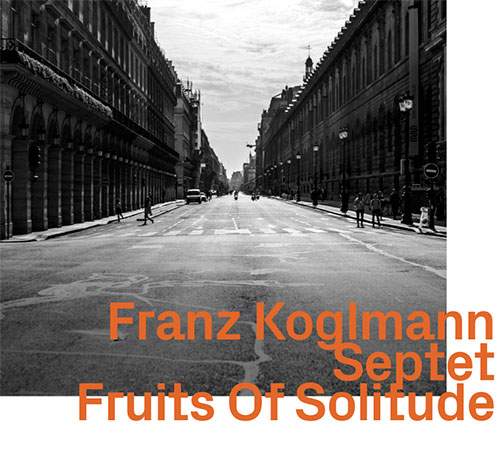
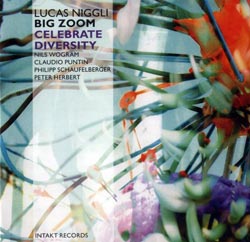

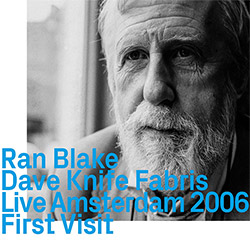

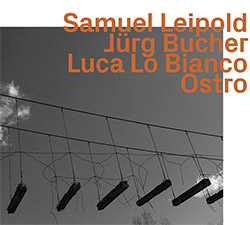
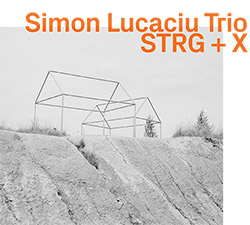
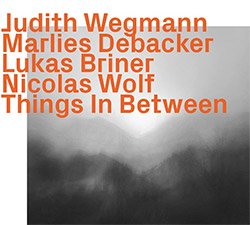
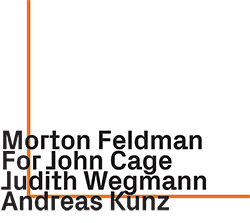
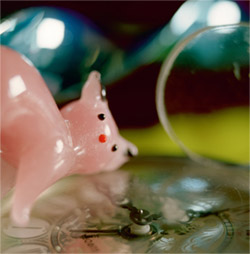
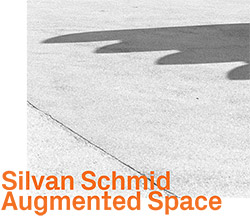

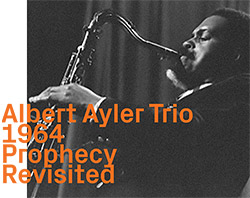
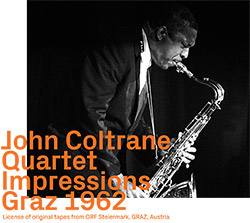
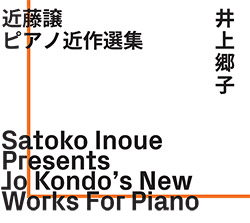





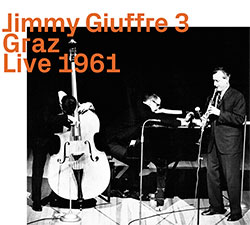
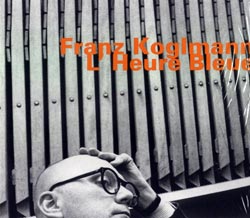
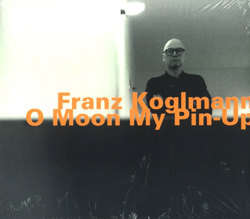
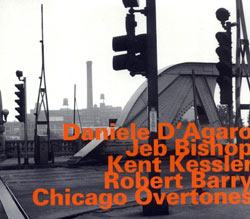
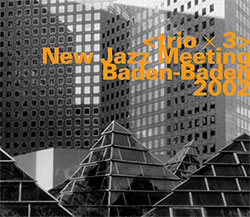
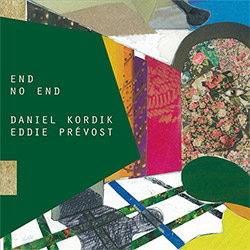





![BlueRing Improvisers: Materia [2 CDs]](https://www.teuthida.com/productImages/misc4/36513.jpg)








![Wheelhouse (Rempis / Adasiewicz / McBride): House And Home [VINYL]](https://www.teuthida.com/productImages/misc4/36462.jpg)
![+DOG+: The Light Of Our Lives [2 CDs]](https://www.teuthida.com/productImages/misc4/36009.jpg)


![Parker, Evan / Jean-Marc Foussat: Insolence [VINYL]](https://www.teuthida.com/productImages/misc4/36398.jpg)










![Deupree, Jerome / Sylvie Courvoisier / Lester St. Louis / Joe Morris: Canyon [2 CDs]](https://www.teuthida.com/productImages/misc4/36404.jpg)



![Eventless Plot | Haarvol: The Subliminal Paths [CASSETTE + DOWNLOAD]](https://www.teuthida.com/productImages/misc4/36232.jpg)










![Eventless Plot | Francesco Covarino: Methexis [CASSETTE + DOWNLOAD]](https://www.teuthida.com/productImages/misc4/36231.jpg)



![Das B (Mazen Kerbaj / Mike Majkowski / Magda Mayas / Tony Buck): Love [VINYL]](https://www.teuthida.com/productImages/misc4/36329.jpg)


![Eternities: Rides Again [CASSETTE]](https://www.teuthida.com/productImages/misc4/36247.jpg)
![Lopez, Francisco: Untitled (2021-2022) [2 CDs]](https://www.teuthida.com/productImages/misc4/36438.jpg)






![Money : Money 2 [2 CDs]](https://www.teuthida.com/productImages/misc4/35894.jpg)




![Klinga, Erik: Elusive Shimmer [VINYL]](https://www.teuthida.com/productImages/misc4/36258.jpg)
![CHANGES TO blind (Phil Zampino): Volume 9 - I Wave on a Fine Vile Mist [CD + DOWNLOAD]](https://www.teuthida.com/productImages/misc4/36061.jpg)

![Wallmart / Rubbish: Asset Protection [split CD]](https://www.teuthida.com/productImages/misc4/35900.jpg)


![+Dog+: The Family Music Book Vol. 5 [2 CDs]](https://www.teuthida.com/productImages/misc4/35897.jpg)
![Kuvveti, Deli : Kuslar Soyledi [CASSETTE w/ DOWNLOAD]](https://www.teuthida.com/productImages/misc4/36107.jpg)

![Brown, Dan / Dan Reynolds: Live At The Grange Hall [unauthorized][CASSETTE]](https://www.teuthida.com/productImages/misc4/36245.jpg)








![Palestine, Charlemagne / Seppe Gebruers: Beyondddddd The Notessssss [VINYL]](https://www.teuthida.com/productImages/misc4/36206.jpg)
![Palestine, Charlemagne / Seppe Gebruers: Beyondddddd The Notessssss [NEON GREEN VINYL]](https://www.teuthida.com/productImages/misc4/36207.jpg)

![Laubrock, Ingrid: Purposing The Air [2 CDs]](https://www.teuthida.com/productImages/misc4/35639.jpg)

![Yoko, Ono / The Great Learning Orchestra: Selected Recordings From Grapefruit [2 CDs]](https://www.teuthida.com/productImages/misc4/35841.jpg)









![Zorn, John / JACK Quartet: The Complete String Quartets [2 CDs]](https://www.teuthida.com/productImages/misc4/35609.jpg)

![Lonsdale, Eden: Dawnings [2 CDs]](https://www.teuthida.com/productImages/misc4/35480.jpg)



![Sorry For Laughing (G. Whitlow / M. Bates / Dave-Id / E. Ka-Spel): Rain Flowers [2 CDS]](https://www.teuthida.com/productImages/misc4/35985.jpg)

![Rolando, Tommaso / Andy Moor : Biscotti [CASSETTE w/ DOWNLOADS]](https://www.teuthida.com/productImages/misc4/36106.jpg)


![Electric Bird Noise / Derek Roddy: 8-10-22 [CD EP]](https://www.teuthida.com/productImages/misc4/35970.jpg)








![Elephant9 : Mythical River [VINYL]](https://www.teuthida.com/productImages/misc4/34624.jpg)



![Elephant9 with Terje Rypdal: Catching Fire [VINYL 2 LPs]](https://www.teuthida.com/productImages/misc4/35355.jpg)
![Deerlady (Obomsawin, Mali / Magdalena Abrego): Greatest Hits [VINYL]](https://www.teuthida.com/productImages/misc4/34876.jpg)






![Surplus 1980: Illusion of Consistency [CD]](https://www.teuthida.com/productImages/misc4/35069.jpg)
![Staiano, Moe: Away Towards the Light [VINYL + DOWNLOAD]](https://www.teuthida.com/productImages/misc4/35037.jpg)
![Coley, Byron: Dating Tips for Touring Bands [VINYL]](https://www.teuthida.com/productImages/misc4/17906.jpg)

![Lost Kisses: My Life is Sad & Funny [DVD]](https://www.teuthida.com/productImages/misc4/lostKissesDVD.jpg)